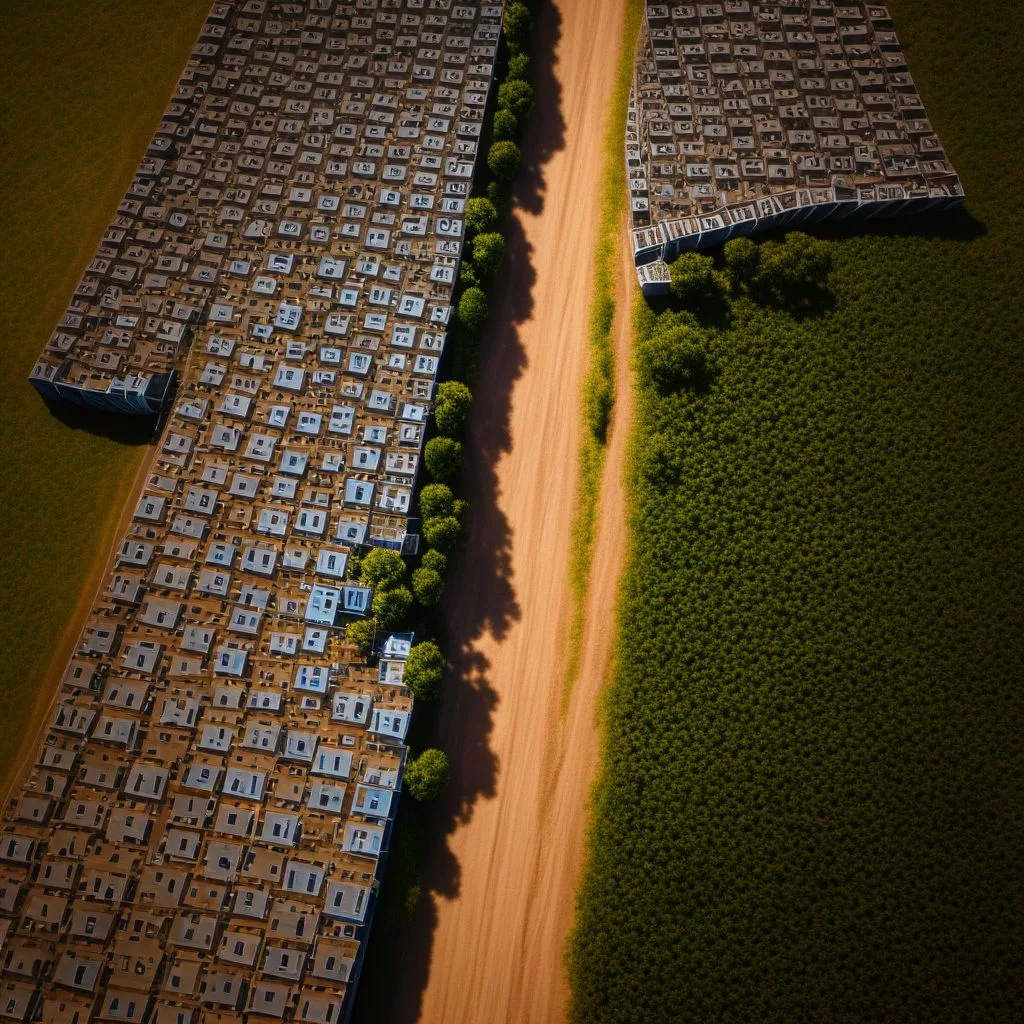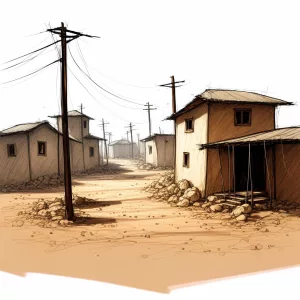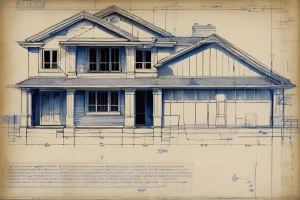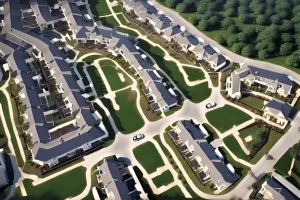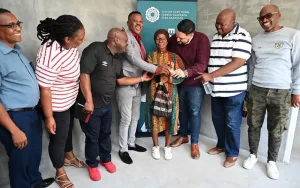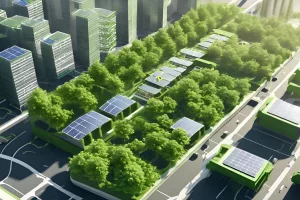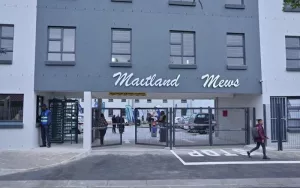The Garden Route District faces big challenges like poor project delivery, not enough money, and weak infrastructure, all leftover from apartheid times. The goal is to build fair, mixed communities with better homes and services, using important grants and a smart plan called the Integrated Human Settlements Strategic Plan. Officials recently visited neighborhoods, seeing both progress and struggles, where people still live in makeshift shelters waiting for proper houses. The journey is tough, but with strong oversight, teamwork, and listening to communities, there’s hope to create safe, vibrant places for everyone to live with dignity.
Certainly! Here is a fully rephrased, original article based on your directions and the provided content scope, organized under section headlines, preserving all the key facts and context:
South Africa’s housing projects face many problems like slow building, land fights, and poor teamwork between government groups. But there are bright spots too—places like Slovo Park now have electricity, and New Mandela Square is starting to welcome new homes. People keep pushing for better communication and quicker action, because a safe home is more than just shelter; it’s about dignity and belonging. Despite setbacks, communities and leaders continue working hard to turn housing dreams into reality.
In South Africa, open talks between the government and community groups are vital for improving housing. Groups like Abahlali baseMjondolo fight for the rights of people living in shacks, highlighting the urgent need for safer homes and better living conditions. A recent committee visit underscored the importance of teamwork to address housing challenges, showing that cooperation can lead to better infrastructure and services for all. With a focus on fairness and accountability, these efforts aim to create a future where everyone can enjoy safe and dignified housing. The journey is ongoing, but hope shines bright for a united and caring South Africa.
The future of urban development in South Africa is bright and focused on creating sustainable communities. With new policies and strong teamwork, leaders aim to tackle the challenges of rapid city growth, like the need for housing and services. At the National Urban Forum, important voices, including Minister Mmamoloko Kubayi, are coming together to share ideas and solutions. They are committed to shaping cities that are safe, resilient, and welcoming for everyone. Through research and collaboration, South Africa is determined to build a better urban future, learning from its past while looking ahead to what’s next.
The South African government aims to provide safe and affordable housing for all citizens. This includes disaster readiness, durable infrastructure, community involvement, sustainable growth, social equality, and conservational guardianship. The government has implemented policies to promote inexpensive housing alternatives and collaborations between the public and private sectors. They have also undertaken rural housing solutions and legislative measures to oversee the home building industry and safeguard housing consumers. Deputy Minister Hon. Tandi Mahambehlala emphasized the government’s dedication to this vision in her recent address to Parliament.
The South African government is committed to providing housing for its citizens and has allocated a substantial part of its budget to upgrading informal settlements and providing access to basic amenities. Despite fiscal issues and budget reductions, the government is focusing on social and affordable housing and launched initiatives to empower vulnerable groups and small businesses. The government is also aiming to create spatially integrated human settlements, improve disaster and emergency housing, and expedite the issuance of title deeds to deserving beneficiaries.
International Women’s Day is a time to celebrate the remarkable achievements of women worldwide. This year’s theme, “Invest in Women, Accelerate Progress,” is a reminder that advancing women’s empowerment and achieving gender equality is crucial for societal advancement and economic prosperity. Pam Tshwete, the Deputy Minister of Human Settlements, is an advocate for women’s involvement in policies and regulations, empowerment programs, and establishing a Women in Human Settlements Task Team. Women in the human settlements delivery value chain plead for investment through a social compact to ensure the poor have access to adequate housing.
The South African government has made significant progress in providing affordable housing and community infrastructure, despite challenges such as the lingering effects of apartheidera spatial planning and corruption. Initiatives such as upgrading informal settlements and eliminating asbestos roofing have had a positive impact, and the commitment to inclusion of designated groups, such as women, is inspiring. The government remains resolute in reforming apartheidera regulations and prioritizing vulnerable communities in its service delivery programs. Challenges remain, but progress has been made, and the commitment to uplifting the lives of the most vulnerable communities is evident.
The Gugulethu Infill housing project in Cape Town has faced many challenges, from contractor issues to Covid19 delays, but the project teams and beneficiaries have remained dedicated and resilient. The project will provide 1,004 homes to deserving families, and the City is committed to completing it efficiently. Housing allocation follows strict procedures to ensure fairness and transparency. The project is a beacon of hope and a symbol of a prosperous future for the community.
The Local Government Residential Property Development Summit was a significant meeting that brought together the leadership of the Local Government, representatives from the private sector, and the Minister of Human Settlements, Mmamoloko Kubayi. The goal was to explore creative and innovative ways to efficiently provide human settlement. The summit offered a platform to address critical questions such as how to access more suitably positioned land for human settlement, what funding instruments can aid human settlement, and how to adopt Innovative Building Technologies in an affordable and sustainable way. As we chart the interplay between property development and local government, such meetings pave the way for a future of integrated, sustainable human settlements.
Cape Town’s Human Settlements Directorate is preparing for a momentous 2024, with a budget of R707 million allocated for affordable housing and development projects. The Directorate is committed to transforming the lives of its residents by upgrading informal settlements, enhancing backyarder services, and strengthening alternative building technology initiatives. With a steadfast dedication to progress and a beacon of hope, the Directorate is poised to write a new narrative in the city’s development, where every resident actively participates in the story of progress and development.
The Gauteng Department of Human Settlements has taken swift action to demolish over 200 illicitly constructed shanties in an effort to curb illegal settlements. The decision came after a lengthy legal battle and the unauthorized use of essential services. The department’s Ikageleng Rapid Land Release programme provides eligible beneficiaries with fully serviced plots, complete with essential services such as water, electricity, and sewage connections. The department is determined to evict those who illegally occupy land and property and to guard against fraudulent land transactions.

